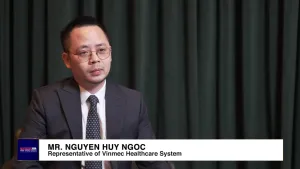
Most older adults in Hong Kong lack life and death education
More than 90% still die in hospitals. This disconnect is due to legal, logistical, and medical barriers, the report said.
Most older adults (92.4%) in Hong Kong have never received any form of life and death education, and 70% of the general population remain unaware of what end-of-life care (EoLC) involves, according to a report by the Our Hong Kong Foundation.
In its report titled “End-of-Life Care Report 2025”, the foundation found death remains a taboo subject, and this discomfort prevents critical conversations about care preferences, advance directives, and emotional preparation.
Without proper education, many patients and families avoid planning, leading to unnecessary medical interventions, emotional stress, and hospital admissions during life’s final stages.
To break this cycle, the report called for a three-tier education strategy targeting schools, communities, and healthcare professionals to normalise discussions and empower people to make informed choices.
The report also stressed that although most Hongkongers say they would prefer to die at home, more than 90% still die in hospitals. This disconnect is due to legal, logistical, and medical barriers.
To address it, the report proposed a three-tier care model: family doctors supported by nurses for stable patients, community palliative care teams for more complex cases, and hospitals reserved for patients with acute needs. Recent legal changes now permit “dying in place” at care homes under specific conditions, but public awareness and system capacity remain low.
Beyond education and planning, the report urged a complete overhaul of how end-of-life services are coordinated. It recommended the development of a unified medical-social digital platform — similar to Singapore’s Integrated Referral Management System — to allow real-time data sharing, cross-sector referrals, and AI-driven insights for better service matching.
In its final recommendations, the report highlighted that facilities such as care homes lack dedicated end-of-life spaces and that families often face unnecessary red tape and costs when managing home deaths.
To truly respect people’s final wishes, the report said the government must streamline death registration processes, expand public mortuary access for home deaths, and update care home regulations to require suitable EoLC facilities.

















 Advertise
Advertise







